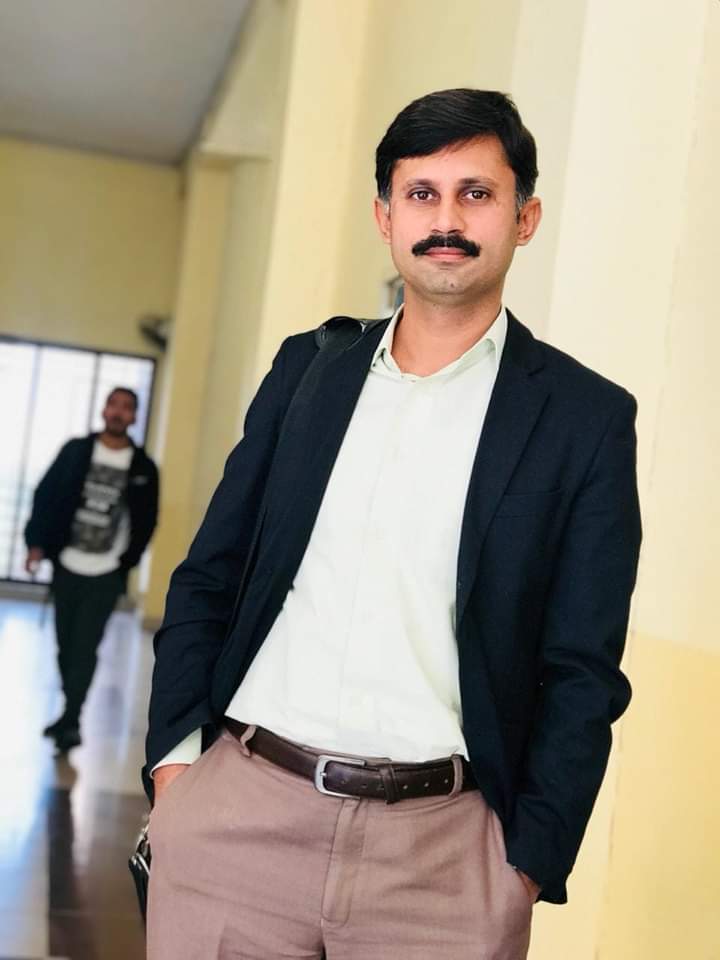Mr. Malik Hassan Raza
Designation : Associate Lecturer
Specialization : Literature
Specialization : Literature
Email : malik.hassan@uog.edu.pk
Office Number : +(92) 92532260000
Mr. Malik Hassan Raza has been serving as associate Lecturer in the Department of English since 2014. Earlier, he has served at PGGMB Skolah, Sungai Akar, Brunei Darussalam. Moreover, he has been working in the Establishment Branch of the Office of the Registrar, UOG. Besides his teaching and administrative experience, he has been serving as Coordinator, Qalamkar Creative Writing Forum. He has supervised the theses of students of Bs and MPhil Programs.
-
Cultural Trauma, Environmental Rhetoric and Literature, Transgender Studies, Postmodern Fiction
- MPhil,Gift University, Gujranwala
- MA,National University of Modern Languages
- BA,University of Punjab
- Fsc,Gujranwala Board of Intermediate & Secondary Education
| Student Name | Degree | Title | Status / Completed Year |
|---|---|---|---|
| Areeba Ghafoor | MS | NARRATIVIZATION AND RECUPERATION: A STUDY OF COMPLEX TRAUMA IN THE WOUNDED HEALER BY PRIYA SAKLANI The narrativization of trauma is a complex subject in literary trauma studies. The presentresearch focuses on the narrativization and recuperation of complex trauma in the memoir TheWounded Healer. The Wounded Healer by Saklani (2018) is used as a text for this study. Thisstudy uses narrative strategies and recuperation from the trauma theory of Whitehead (2004)and Vickroy (2002, 2014) as a research framework. The narrativization of complex traumatransforms the fragmented traumatic experiences into a narrative that leads to the recuperationof the trauma victim. This study aims to examine narrative strategies through the analysis ofthe literary work and the recuperation of complex trauma through narrativization. It usestextual analysis as a method of research. The findings reveal that the text utilizes narrativestrategies such as intertextuality, repetition, literary devices, fragmentation, and textual gapsfor the narrativization of complex trauma. Such narrative strategies make the representation oftrauma possible in the form of a narrative. The use of such narrative strategies overcomes thechallenges in the representation of trauma and leads to recuperation. Through exploration ofthese aspects, the study creates a connection between narrativization and recuperation ofcomplex trauma. | 2024 |
| Warda Nayab Tariq | MS | (DE)PATRIARCHALIZING THE FEMININE SHAME: A STUDY OF SHAFAK’S HONOR Patriarchal structure of honor culture sets multiple challenges to the empowerment ofwomen. Shafak has addressed these challenges in her novel Honor. She was born inFrance but she has lived most part of her life in Turkey. Being a female herself, broughtup in honor culture, she represents the plight of women in an honor culture through herfemale characters struggling to subvert patriarchal supremacy. Jameela and Isma inHonor resist patriarchal designs through their insubordination. Pembe raises her sonIskendar calling him the sultan of the family. He is assigned this role of supervision ofthe honour and shame of his family. The study explores patriarchal construction offeminine shame leading to the normalization of violence against women. Iskandar,acting according to his role as Sultan, intends to kill his mother who has violated hergender role bringing shame to family. It investigates Shafak’s narrative strategies todepatriarchalize feminine shame voicing subjective emotional experiences of victims.Shafak gives voice to her female characters. Esma, daughter of Pembe, addresses theissue of feminine shame through her writing. According to Shafak, the written cultureis patriarchal where men write and women read. Through her writing, Shafak wants tobring the change in patriarchal structure. Max Scheler’s existentialist theoreticalformulation of shame has been used to examine the feminine shame as a subjectiveemotional experience rather than a culturaly constructed emotion. The present studyalso considers the representation of feminine shame in an honor culture as somethingwhich brings disgrace to male pride. Additionally, the research examines the wayShafak challenges these conventional views and presents feminine shame as a complexand subjective emotional experience. Textual Analysis method with close readingtechnique has been used to analyze the text. This method helps to explore the idea ofdepatriarchalization in the selected text. Jamila’s abduction is considered as a matter ofdisgrace to her family.This study has examined that Shafak has depatriarchalized thefeminine shame through its portrayal as a subjective emotional experience. She haschallenged the male pride through her male character Iskendar who repents onassuming the role assigned to him as a male member of his family in an honor culture. | 2024 |
- Sports Coordinator, Department of English
- Coordinator, Qalamkar Creative Writing Forum
